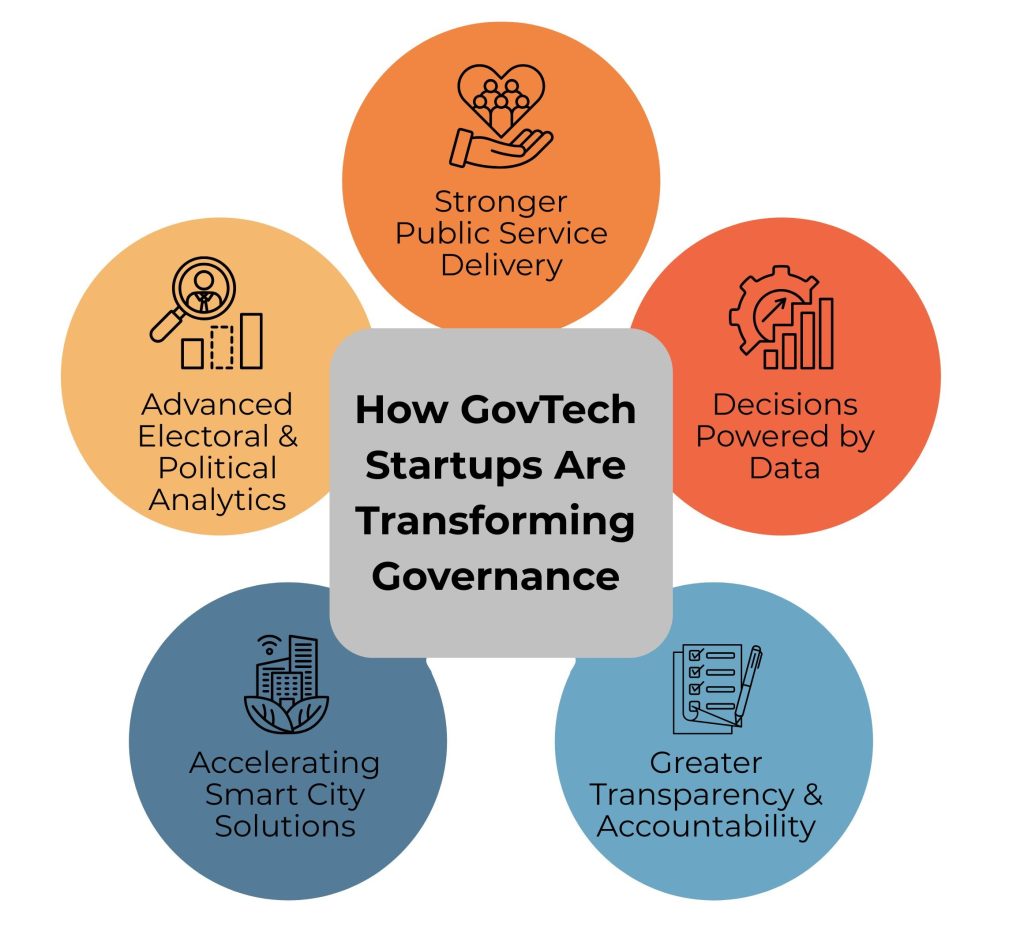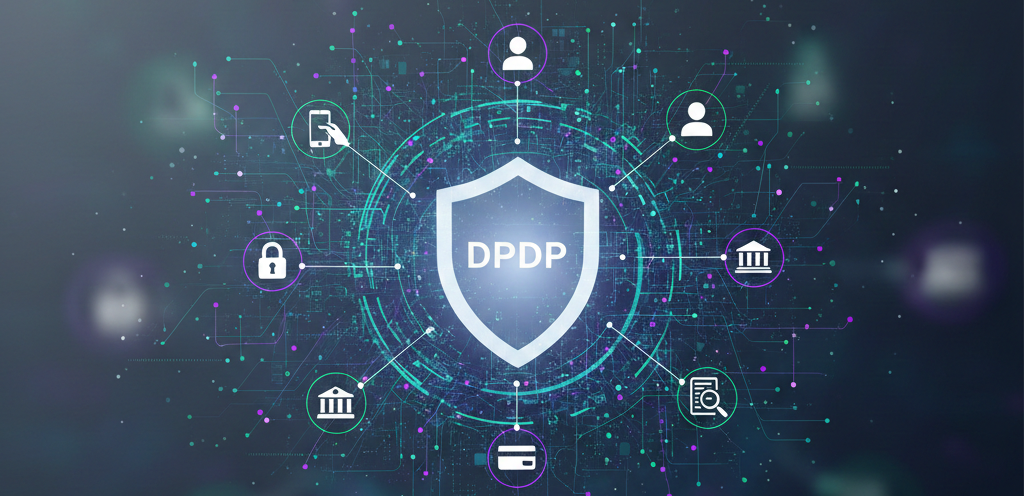
Introduction
In an era where technology is reshaping every sector, governance is no exception. Governments worldwide are increasingly embracing technology to improve efficiency, transparency, and citizen engagement. This has led to the rise of GovTech startups—companies dedicated to developing technology-driven solutions for the public sector. These startups play a crucial role in transforming governance by leveraging data analytics, AI, blockchain, and cloud computing to enhance service delivery, decision-making, and public administration.

The Role of GovTech Startups in Governance
1. Enhancing Public Service Delivery
GovTech startups are helping governments digitize and streamline public services. From online grievance redressal systems to AI-powered chatbots for citizen queries, these startups are making governance more accessible and citizen-friendly. Example: India’s e-Governance initiatives like DigiLocker and UMANG have benefited from startup-driven innovation, making document storage and access seamless for millions.
2. Data-Driven Decision Making
With the proliferation of big data, governments are relying on GovTech startups to analyze vast amounts of information for policy-making and governance. Example: Startups like SocialCops have assisted governments in making data-driven decisions for urban planning and healthcare initiatives.
3. Improving Transparency and Accountability
Blockchain technology and AI-driven audit tools are enabling greater transparency in governance. GovTech startups provide digital solutions that track public spending, prevent corruption, and improve accountability. Example: Platforms that use blockchain to track government tenders and contracts ensure minimal leakage and corruption.
4. Boosting Smart City Initiatives
GovTech startups play a key role in developing smart city solutions—integrating IoT, AI, and real-time analytics to enhance urban infrastructure and management. Example: Startups offering smart traffic management, waste management, and surveillance solutions contribute significantly to urban governance.
5. Electoral and Political Analytics
Political consulting firms, many of which are GovTech startups, leverage data analytics to help parties and governments understand voter sentiments, assess electoral trends, and strategize campaigns. Example: Companies like Jarvis Technology & Strategy Consulting provide AI-powered political insights and voter engagement strategies.
Challenges Faced by GovTech Startups
Despite their potential, GovTech startups face several challenges:
- Bureaucratic Hurdles: Navigating government regulations and procurement processes is often cumbersome.
- Data Security & Privacy Concerns: Handling sensitive government and citizen data requires robust cybersecurity measures.
- Adoption Barriers: Governments may be slow to adopt new technologies due to legacy systems and resistance to change.
- Funding Constraints: Unlike consumer tech startups, GovTech startups often struggle with limited investor interest due to long sales cycles and dependence on government contracts.
The Future of GovTech in India
With initiatives like Digital India, Smart Cities Mission, and Startup India, the Indian government is actively fostering an environment where GovTech startups can thrive. Public-Private Partnerships (PPPs), regulatory sandboxes, and government-backed incubation programs are creating opportunities for startups to innovate in governance.
Conclusion
GovTech startups are redefining the relationship between governments and citizens by making governance more efficient, transparent, and data-driven. As India moves towards a digital future, the collaboration between startups and the public sector will be critical in shaping a more inclusive and tech-driven governance ecosystem.
GovTech is no longer an option—it is an imperative for modern governance.











